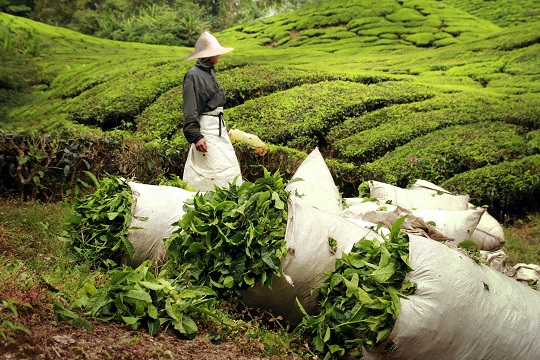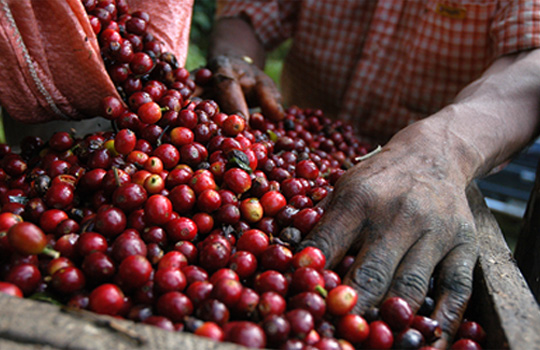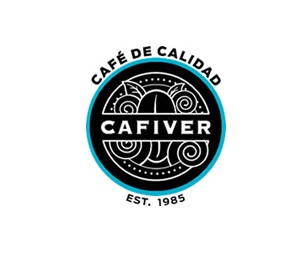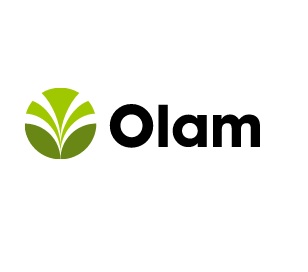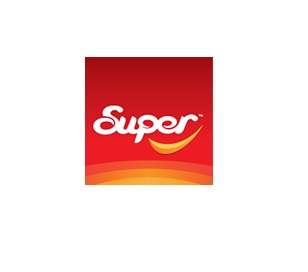COFFEE & TEA
As it should be
 Over the past 30 years, Flavourtech has been pioneering the development of aroma and flavour recovery technologies to improve the production of soluble (instant) coffee and Ready-To-Drink (RTD) tea and coffee. Flavourtech’s innovative technology solutions provide quick, gentle and efficient aroma recovery, extraction and evaporation processes that enable the production of high quality end products that possess all the natural flavour of the original tea or coffee.
Over the past 30 years, Flavourtech has been pioneering the development of aroma and flavour recovery technologies to improve the production of soluble (instant) coffee and Ready-To-Drink (RTD) tea and coffee. Flavourtech’s innovative technology solutions provide quick, gentle and efficient aroma recovery, extraction and evaporation processes that enable the production of high quality end products that possess all the natural flavour of the original tea or coffee.
Following success in the wine industry, Flavourtech’s flagship technology, the Spinning Cone Column (SCC) began to generate interest in the coffee industry, specialising in aroma recovery for the production of instant coffee. This unique technology is designed such that it overcomes aroma losses that are often experienced with conventional processing. The addition of the Centritherm® evaporator to its portfolio expanded Flavourtech’s capabilities in the coffee industry, improving how manufacturers concentrate and dry coffee extracts.
 As demand grew for new processing solutions for instant tea and coffee beverages, Flavourtech developed the Integrated Extraction System (IES) as a revolutionary way to produce premium liquid extracts from tea and coffee. Subsequently, the IES is now also used for RTD tea and coffee production.
As demand grew for new processing solutions for instant tea and coffee beverages, Flavourtech developed the Integrated Extraction System (IES) as a revolutionary way to produce premium liquid extracts from tea and coffee. Subsequently, the IES is now also used for RTD tea and coffee production.
Building on its success in the instant beverage market, Flavourtech developed the Rotating Disc Column (RDC) for continuous high temperature extraction in instant coffee production. The RDC now enables Flavourtech to offer a complete processing line for the production of high quality aroma and concentrate for the instant coffee industry.
Flavourtech’s suite of technologies includes a range of applications for tea and coffee processing, including:
- Production of premium quality RTD tea and coffee
- Complete processing lines for soluble tea and coffee
- Aroma recovery in the soluble coffee industry
Flavourtech not only works closely with its clients to optimise the integration of their technologies into production processes, but also offers extensive experience in improving process and energy efficiencies.
APPLICATIONS
Production of premium quality RTD tea and coffee
 The demand for convenient tea and coffee products is increasing worldwide as consumers look for healthier alternatives to carbonated drinks. In fact, category growth for the global RTD tea and coffee markets is estimated at 13.5% and 5.5% respectively for the next five years according to research company Markets & Markets.
The demand for convenient tea and coffee products is increasing worldwide as consumers look for healthier alternatives to carbonated drinks. In fact, category growth for the global RTD tea and coffee markets is estimated at 13.5% and 5.5% respectively for the next five years according to research company Markets & Markets.
Over the last 15 years Flavourtech, with its unique know-how and experience, has been assisting RTD beverage companies in the USA, Asia and Europe to produce premium quality tea and coffee aromas and concentrates for this growing market.
The traditional manufacturing techniques used for RTD tea and coffee fail to retain any of the distinctive aroma that is desired by consumers. Flavourtech therefore developed the modular Integrated Extraction System (IES) for the production of premium tea and coffee extracts and concentrates. Products made utilising Flavourtech’s IES provide all of the fresh brewed flavour of the original tea leaf or coffee bean and are leading the market in Japan, Korea and the USA.
At the core of the IES is the SCC, now widely acknowledged as the world’s premier flavour-recovery technology. When a slurry of ground coffee or tea leaves mixed with water is introduced into the SCC, the beverage is literally brewed within the closed system. The SCC effectively performs the dual roles of flavour and soluble-solids extraction simultaneously, thus avoiding intermediate flavour loss or degradation.
The SCC efficiently captures all of the delicate, floral notes distinctive of varietal teas. The concentration of volatile compounds produced by the IES compared to other commercially available tea extract is much higher.
The SCC can also capture the natural aroma of roast and ground coffee, providing the fresh brewed taste that consumers are looking for – and which can even be indicative of the region of origin. This is an important contributor to quality as modern coffee consumers are now more knowledgeable and demanding of their favourite brew.

Once the desired aroma is captured, the de-aromatised slurry may be passed through the Rotating Disc Column (RDC) for further higher temperature extraction of the spent beans or can progress to the clarification module. This is normally a decanter followed by either a centrifuge or filtration system, depending on clarity and packaging requirements.
The clarified extract is then processed through the unique Centritherm evaporator, which uses spinning cone technology for evaporation with only one second heat contact time at low temperatures. This allows the maximum level of catechins, polyphenols and phytonutrients to be retained. The Centritherm evaporator can concentrate extracts to higher levels than other evaporators, concentrating tea and coffee extracts up to 70% soluble solids with minimal thermal impact.
The resulting IES product streams are:
- high quality natural tea and coffee essences with the desired aroma profile; and
- premium tea and coffee extracts or concentrates with maximum preservation of active ingredients and colour.
These streams may then be sold separately or blended to meet the specific requirements of particular customers.
Complete processing lines for soluble coffee
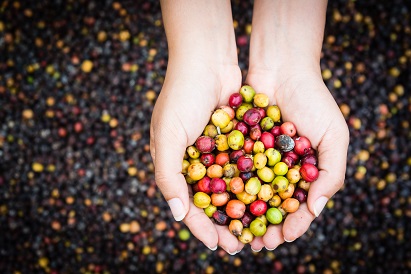 The extraction of coffee solids for the production of soluble coffee remained relatively unchanged for 50 years. In the conventional soluble coffee process aroma is typically captured after extraction has occurred. However, many instant coffee manufacturers have observed that much of the roasted coffee aroma has been lost by this stage and producers world-wide have been looking for a solution. Flavourtech has used its expertise and know-how to address this problem and has developed the Rotating Disc Column (RDC), which can now be incorporated into the Flavourtech IES to produce soluble coffee with premium roast and ground flavour.
The extraction of coffee solids for the production of soluble coffee remained relatively unchanged for 50 years. In the conventional soluble coffee process aroma is typically captured after extraction has occurred. However, many instant coffee manufacturers have observed that much of the roasted coffee aroma has been lost by this stage and producers world-wide have been looking for a solution. Flavourtech has used its expertise and know-how to address this problem and has developed the Rotating Disc Column (RDC), which can now be incorporated into the Flavourtech IES to produce soluble coffee with premium roast and ground flavour.
 The roasted coffee beans are first milled and made into a slurry that is fed to the SCC to capture the desired fresh roasted aroma before any high temperature degradation can occur. The de-aromatised slurry then passes directly to the RDC for the high temperature extraction step. Unlike other systems that use a series of extraction cells, the RDC is a continuous, agitated plug flow reactor that only requires a residence time of just 20 minutes within the extraction column. The slurry exiting the RDC is then clarified and concentrated, just as occurs in the conventional process. The key difference occurs when the natural coffee aroma captured at the very start of the process is then added back to the concentrate on its way to the drying stage. The result is a premium instant coffee that retains the true roast and ground flavour properties of the original coffee beans, allowing manufacturers to meet the ever increasing taste preferences of consumers.
The roasted coffee beans are first milled and made into a slurry that is fed to the SCC to capture the desired fresh roasted aroma before any high temperature degradation can occur. The de-aromatised slurry then passes directly to the RDC for the high temperature extraction step. Unlike other systems that use a series of extraction cells, the RDC is a continuous, agitated plug flow reactor that only requires a residence time of just 20 minutes within the extraction column. The slurry exiting the RDC is then clarified and concentrated, just as occurs in the conventional process. The key difference occurs when the natural coffee aroma captured at the very start of the process is then added back to the concentrate on its way to the drying stage. The result is a premium instant coffee that retains the true roast and ground flavour properties of the original coffee beans, allowing manufacturers to meet the ever increasing taste preferences of consumers.
The separate aroma and concentrate streams are of such high quality that they can also be used to create products for the RTD coffee market allowing IES owners to maximise the returns from their valuable IES investment.
Complete processing lines for soluble (instant) tea
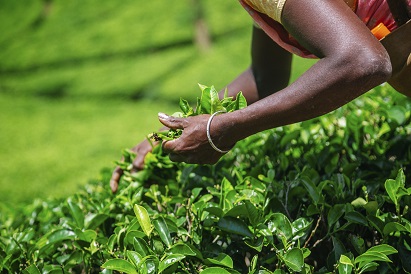 Major flavour loss in the traditional soluble tea manufacturing process occurs during the heat-intensive extraction, concentration and drying stages. Importantly, there is no aroma recovery step to capture and preserve the delicate tea aroma prior to these processes. Therefore, soluble teas generally don’t contain any of the distinctive floral characters of a fresh brew. At the extraction stage this is due to the long brewing time that most teas are exposed to in order to achieve sufficient recovery of soluble solids. This can range from a few minutes up to half an hour in a batch type process. Most processes also use recirculating-type evaporators that not only darken the extract and destroy the active ingredients but can also add undesirable heavy brewed notes to the final concentrate.
Major flavour loss in the traditional soluble tea manufacturing process occurs during the heat-intensive extraction, concentration and drying stages. Importantly, there is no aroma recovery step to capture and preserve the delicate tea aroma prior to these processes. Therefore, soluble teas generally don’t contain any of the distinctive floral characters of a fresh brew. At the extraction stage this is due to the long brewing time that most teas are exposed to in order to achieve sufficient recovery of soluble solids. This can range from a few minutes up to half an hour in a batch type process. Most processes also use recirculating-type evaporators that not only darken the extract and destroy the active ingredients but can also add undesirable heavy brewed notes to the final concentrate.
Flavourtech’s IES captures the flavour from the tea as it is being brewed and stores it under optimum conditions, protecting the delicate, varietal “top-notes” from damage or loss. The recovered flavour may then be added back to the concentrated extract immediately prior to spray drying or during reconstitution of the powder.
Aroma Recovery in Soluble Coffee Processing
Flavourtech’s SCC technology has become a standard piece of equipment in premium soluble coffee plants around the world since it dramatically increases the amount of coffee flavour and aroma in the final cup of coffee. In fact, many of Flavourtech’s existing customers report that prior to using the SCC up to 90% of flavour available in their roasted coffee beans was lost between roasting and consumption of the soluble product.
There are over 120 installations of SCC columns around the world for this application, in countries that include Brazil, Colombia, Germany, Russia, Japan, Indonesia, Malaysia, China, USA and Korea, indicating the influence of the SCC in the instant coffee we drink. Soluble coffee companies often turn to the SCC to provide them with the flexibility to easily capture a range of aroma profiles in order to enhance their final product and meet the taste preferences of global consumers.
Aroma extraction from liquid coffee extracts
The preferred method of aroma recovery by the majority of high volume soluble coffee producers is to use the SCC for aroma extraction from liquid coffee extracts.
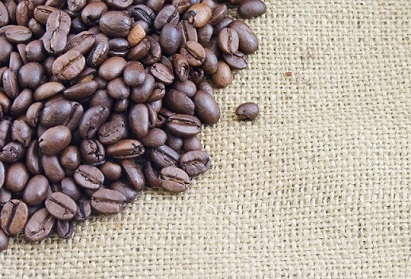 In this application, the SCC is incorporated into a soluble coffee plant directly after the extraction cells. The liquor from the extraction cells is processed through the SCC and the volatile compounds (flavour/aroma) are collected and protected in a chilled tank. The recovered aroma is stored under optimum conditions thereby avoiding thermal exposure and the inherent loss or damage normally suffered during concentration. It is then returned to the concentrated extract immediately prior to spray or freeze drying to improve the flavour of the final powder.
In this application, the SCC is incorporated into a soluble coffee plant directly after the extraction cells. The liquor from the extraction cells is processed through the SCC and the volatile compounds (flavour/aroma) are collected and protected in a chilled tank. The recovered aroma is stored under optimum conditions thereby avoiding thermal exposure and the inherent loss or damage normally suffered during concentration. It is then returned to the concentrated extract immediately prior to spray or freeze drying to improve the flavour of the final powder.
The flexibility of the SCC gives instant coffee manufacturers the ability to control the system under different operating parameters to broadly fractionate the volatile compounds recovered, removing any heavy and undesirable flavours caused by the high temperatures generated in the percolation cells. This allows various aroma profiles to be collected from the same raw material to produce powders with different flavours to cater for the varying taste demands of consumers. Many Flavourtech customers have taken advantage of this flexibility to grow their businesses as they can easily produce powders for different product categories or different export markets.
Aroma extraction from coffee slurry
The SCC is unique among distillation systems in that it is able to process feed streams containing high proportions of suspended solids. If a slurry of roast and ground coffee beans mixed with cold water is fed into the SCC, it is possible to capture an intense fresh-roasted aroma by brewing the coffee within the SCC itself.
The recovered aroma is not only more concentrated than that recovered from liquid coffee extracts, but also generously weighted in distinctive front-end compounds that many soluble coffees lack. Therefore many soluble coffee manufacturers are now incorporating aroma recovered from coffee slurries into their products to create premium soluble coffees that can be sold to different markets at higher margins.
Aroma extraction from tea slurry
 The unique ability of the SCC to gently process liquid slurries at low temperatures allows it to capture the delicate and distinctive top notes of tea. This provides customers with the true natural aroma that is specific to that tea and the area in which it was cultivated. Distinctive top notes of teas such as Darjeeling, Assam or Ceylon single estate teas can be captured completely and without damage, allowing consumers to enjoy tea aromas representative of their region of origin.
The unique ability of the SCC to gently process liquid slurries at low temperatures allows it to capture the delicate and distinctive top notes of tea. This provides customers with the true natural aroma that is specific to that tea and the area in which it was cultivated. Distinctive top notes of teas such as Darjeeling, Assam or Ceylon single estate teas can be captured completely and without damage, allowing consumers to enjoy tea aromas representative of their region of origin.
Of course, the SCC not only captures the distinctive top notes of the tea but at the same time brews the tea. The SCC with integrated slurry preparation system is replacing the batch type brewing kettles that are normally at the front end of many tea processing facilities. This is assisting manufacturers by producing a continuous, more consistent product, utilising much less labour, floorspace and energy.
High Quality Tea & Coffee Concentrates
Both green and black tea extracts are extremely sensitive to heat which can cause changes to the colour and flavour of the extract. In extreme cases, this “thermal impact” can cause caramelisation of naturally occurring sugars within the tea extract. To ensure production of a high quality concentrate, the tea extract must not be exposed to high temperatures for any longer than is absolutely necessary.

In the instant coffee process, many producers push their falling film evaporator to the limit by attempting to achieve a suitably high concentration of coffee extract to feed to their spray dryer. Unfortunately, the high temperatures and long residence times to which the extract is subjected in multi-stage falling film evaporators, not only create undesired aromas, but also a much darker concentrate, which in turn results in a darker instant coffee powder.
The Centritherm evaporator can be used for concentrating tea and coffee extracts up to 70% soluble solids, without the need for extended residence times or high temperatures. The concentrate produced is of extremely high quality – preserving colour, flavour and active ingredients. This is all due to the Centritherm evaporator’s short residence times and low operating temperatures. The technology is also often used as a finisher in the evaporation process to reduce process and energy requirements in downstream processes, such as drying.
